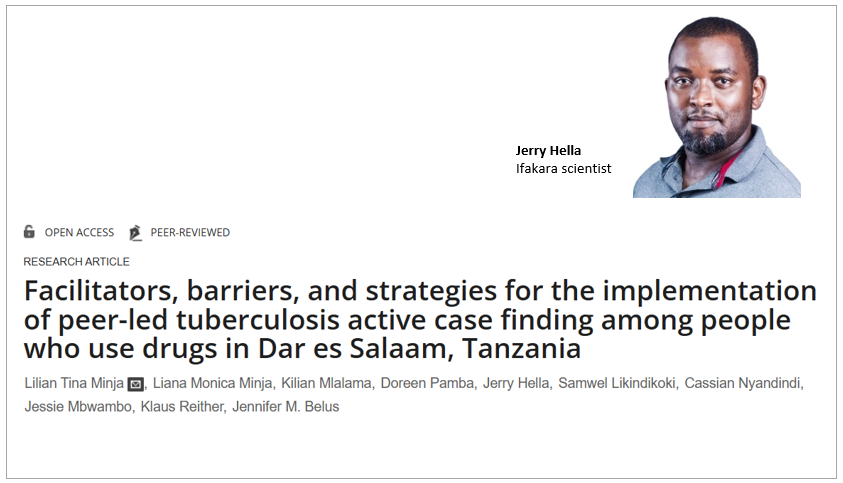
TB: Study finds peer-led disease screening helps drug users get tested, treated

A new study conducted in Dar es Salaam highlights the potential of peer-led approaches to improve tuberculosis (TB) screening among people who use drugs (PWUD)—a population highly vulnerable to TB but often underserved by formal health systems.
Published on PLOS One, the research explored the experiences and perceptions of both current and likely future service users to understand the factors that support or hinder peer-led active case finding (ACF) for TB.
Through in-depth interviews with 22 participants—including peer educators, methadone clinic clients, and community-based PWUD—the study identified key strengths and challenges in delivering TB services to this group.
Peers trusted as effective service providers
One of the most key findings was the strong trust and acceptance of peers as TB service providers. PWUD were more open to screening when it was conducted by trained individuals with lived experience of drug use, highlighting the value of community-driven interventions.
The study also identified opportunities to improve the effectiveness of peer-led TB services, including enhancing screening tools, expanding mobile diagnostic services, integrating TB care into methadone clinics, and offering small financial incentives to peer workers.
Barriers include stigma, mobility, and treatment fears
However, several barriers remain. These include poor adherence to infection prevention measures—driven by stigma and misinformation—high mobility among PWUD, and fears that TB treatment could trigger withdrawal symptoms due to interactions with opioid therapies. Addressing these concerns is essential to improving service uptake and treatment adherence.
Study led by Tanzanian and Swiss institutions
The study was led by researchers from the National Institute for Medical Research (NIMR), Tanzania, with contributions from partners in Switzerland and Tanzania, including the Ifakara Health Institute—represented by scientist Jerry Hella, Swiss Tropical and Public Health Institute (Swiss TPH), University of Basel, Muhimbili University of Health and Allied Sciences (MUHAS), the Drug Control and Enforcement Authority (DCEA), and Muhimbili National Hospital.
Recommendations for strengthening TB services
The researchers recommend scaling up mobile diagnostic services, introducing symptom-independent screening tools such as chest X-rays, and implementing peer-led awareness campaigns to reduce stigma and improve infection control.
They also suggest the use of anti-TB medications with minimal interaction with opioid treatments to reduce the risk of withdrawal and improve treatment adherence.
Overall, the study demonstrates the importance and effectiveness of involving peers in TB screening efforts and calls for continued investment in community-based strategies to close the TB detection gap among marginalized populations.
Read the publication here.
